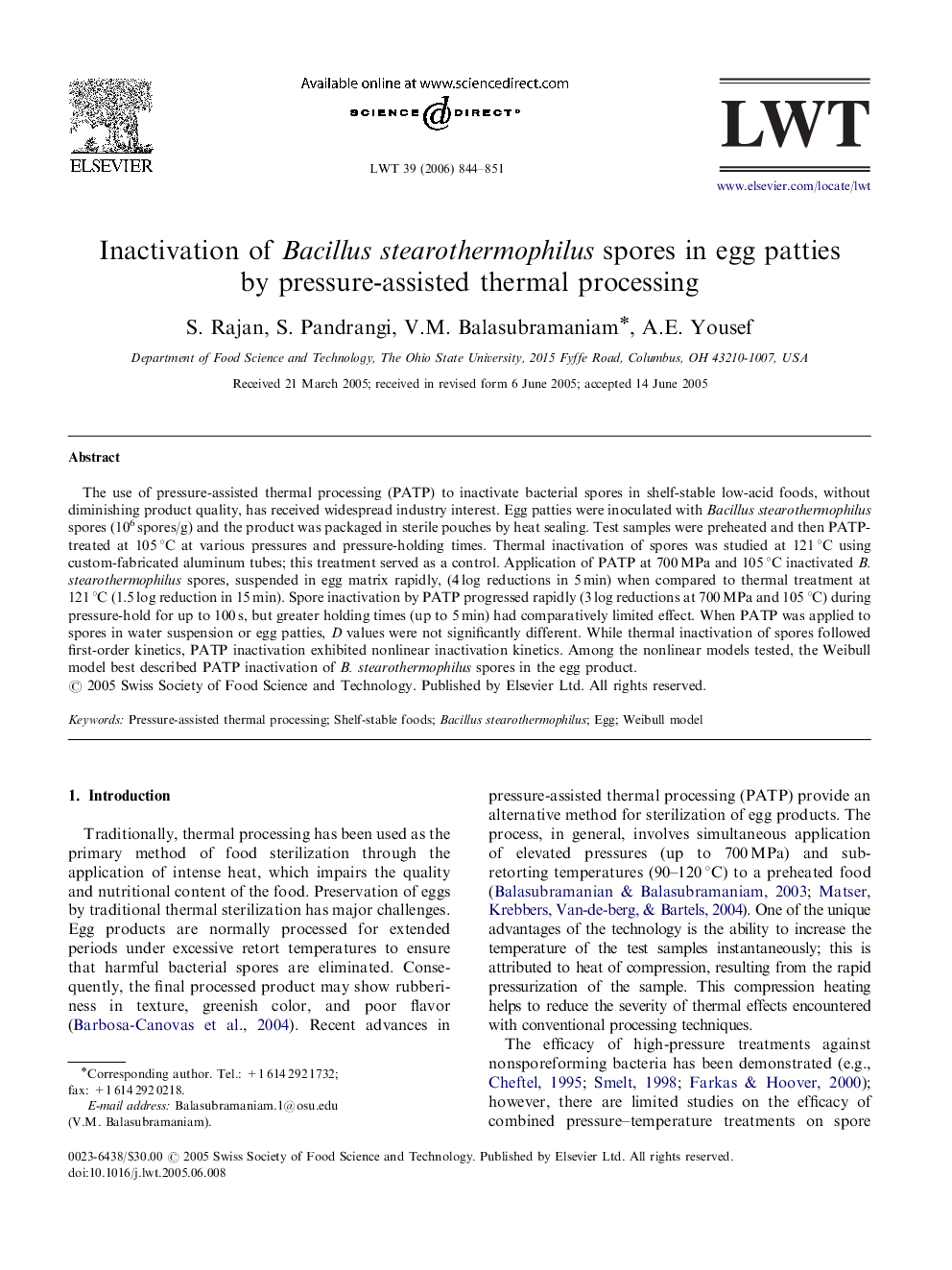| Article ID | Journal | Published Year | Pages | File Type |
|---|---|---|---|---|
| 4565400 | LWT - Food Science and Technology | 2006 | 8 Pages |
The use of pressure-assisted thermal processing (PATP) to inactivate bacterial spores in shelf-stable low-acid foods, without diminishing product quality, has received widespread industry interest. Egg patties were inoculated with Bacillus stearothermophilus spores (106 spores/g) and the product was packaged in sterile pouches by heat sealing. Test samples were preheated and then PATP-treated at 105 °C at various pressures and pressure-holding times. Thermal inactivation of spores was studied at 121 °C using custom-fabricated aluminum tubes; this treatment served as a control. Application of PATP at 700 MPa and 105 °C inactivated B. stearothermophilus spores, suspended in egg matrix rapidly, (4 log reductions in 5 min) when compared to thermal treatment at 121 °C (1.5 log reduction in 15 min). Spore inactivation by PATP progressed rapidly (3 log reductions at 700 MPa and 105 °C) during pressure-hold for up to 100 s, but greater holding times (up to 5 min) had comparatively limited effect. When PATP was applied to spores in water suspension or egg patties, D values were not significantly different. While thermal inactivation of spores followed first-order kinetics, PATP inactivation exhibited nonlinear inactivation kinetics. Among the nonlinear models tested, the Weibull model best described PATP inactivation of B. stearothermophilus spores in the egg product.
